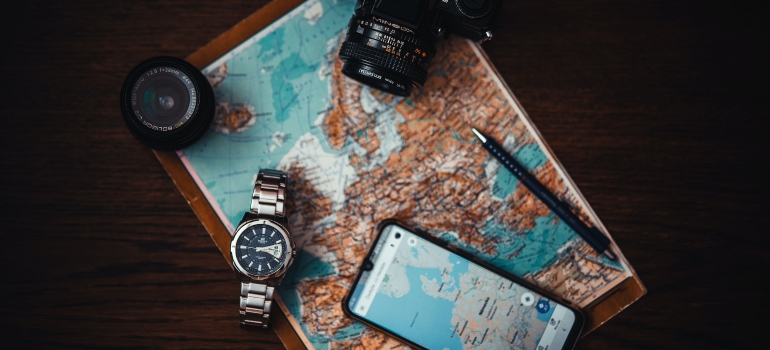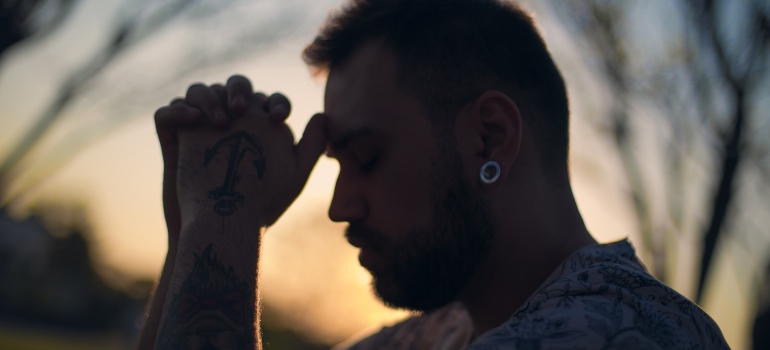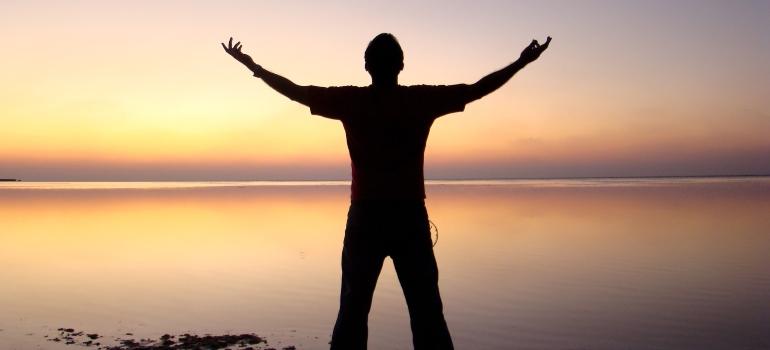Traveling can be an exciting and rejuvenating experience, but it can also pose unique challenges for those in recovery from addiction or mental health issues. Whether it’s a vacation or a work trip, traveling can disrupt routines, expose you to new triggers, and tempt you to let your guard down. However, with the right planning and mindset, traveling while in recovery can also be an opportunity to strengthen your recovery and gain new perspectives. In addition, it’s important to find proper drug and alcohol rehab in WV that will support your recovery journey and aftercare.
Here at Harmony Ridge Recovery Center WV, we make sure not only to help patients overcome addiction but to maintain lasting sobriety. Therefore, we invite you to contact us for more details about our treatments, as well as the admission process and insurance.
Plan ahead and stick to a schedule
One of the most important things you can do to ensure a successful trip while in recovery is to plan ahead. This includes booking your transportation and lodging well in advance, researching the area you’ll be traveling to, and creating a daily itinerary. By having a set schedule, you’ll have structure and routine, which can help you feel more grounded and in control. Make sure your schedule includes time for self-care activities, such as exercise, meditation, or journaling. It’s also a good idea to plan out your meals in advance and bring along any snacks or supplements that you need to stay on track with your nutrition.

While it’s important to have a schedule and itinerary for your trip, it’s also important to avoid over-committing yourself. Traveling can be exhausting, and it’s important to prioritize rest and relaxation. Be realistic about how much you can do in a day, and give yourself permission to take breaks or change your plans if you need to. It’s better to have a few meaningful experiences than to rush through a checklist of tourist attractions.
Think of activities that will keep you engaged during your trip
Traveling can be an opportunity to try new things and explore new interests. Staying active and engaged can help you maintain a positive outlook and reduce stress. Research local activities or events that align with your interests, such as hiking, yoga classes, or art museums. Take a walking tour or rent a bike to explore the area. Engage with locals and other travelers by striking up conversations or joining group activities.
Identify your triggers
Before you set off on your travels, it’s crucial to identify your triggers. Your triggers can be anything from negative thoughts, physical sensations, or emotions that can lead to cravings or relapses. Some common triggers for travelers include:
- Stressful situations such as missed flights, lost baggage, or language barriers.
- Busy, crowded places such as tourist attractions, festivals, or markets.
- Alcohol or drug-related environments such as bars or clubs.
- Emotional stressors such as homesickness, loneliness, or culture shock.
- Lack of routine or structure, which leads to a sense of disorientation.
Identifying your triggers is the first step in managing them while traveling. Take some time to reflect on your past experiences and identify the situations that have triggered you in the past. By doing so, you can plan for these situations and develop coping mechanisms to deal with them.

Developing a plan to manage triggers while traveling
Once you’ve identified your triggers, it’s time to develop a plan to manage them while traveling. Here are some tips to help you stay on track and enjoy your travels:
- Create a daily routine – Traveling can disrupt your daily routine, leading to a sense of disorientation or anxiety. To combat this, create a daily routine that includes exercise, meals, and relaxation time. This routine will give you a sense of structure and control, helping you to manage your triggers more effectively.
- Research your destination – Before you set off on your travels, research your destination and the activities available. If you know that being around alcohol can be a trigger, consider staying in a sober hotel or Airbnb, or researching non-alcoholic activities in the area. Similarly, if you struggle with crowded places, plan to visit tourist attractions during off-peak hours to avoid crowds.
- Stay connected: Traveling can be a lonely experience, leading to feelings of isolation or homesickness. Stay connected with friends and family back home via phone or video calls, or join online travel groups to connect with other travelers. This connection can provide you with emotional support and a sense of community, and also reduce your triggers, and make your travels more enjoyable.
- Practice self-care: Self-care is essential when traveling, particularly if you have a history of addiction or mental health issues. Make time for activities that nourish your mind, body, and soul, such as yoga, meditation, or journaling. These activities will help you stay grounded and reduce your triggers while traveling.
- Be mindful of your limits: Make sure to set boundaries while you’re traveling. This may mean avoiding certain situations or activities that could compromise your sobriety or mental health. For example, if you know that being around certain people or environments is triggering, it’s okay to decline an invitation or excuse yourself from a situation. Don’t feel pressured to do something that doesn’t feel right for you.
Don’t forget your emergency plan
When traveling while in recovery, having an emergency plan in place is crucial. It can mean the difference between a smooth journey and a stressful, potentially harmful one. In this article, we’ll explore the reasons why an emergency plan is important and what should be included in it.
One of the primary reasons for having an emergency plan is to protect your health and well-being. When you’re in recovery, you may have specific needs or restrictions that must be taken into account. For example, if you’re recovering from alcohol addiction, being around alcohol or people who are drinking could trigger a relapse. An emergency plan can help you avoid such situations by identifying potential triggers and outlining steps to take if you encounter them.
The emergency plan minimizes stress and anxiety
An emergency plan provides a sense of security and control. Knowing what to do in an emergency can help you feel more prepared and less anxious about the trip. Even with careful planning, emergencies can happen. For example, if you have a medical emergency, your plan can outline the nearest hospitals and medical facilities, as well as contact information for your healthcare providers. This can help ensure that you receive prompt and appropriate medical care in case of necessity.

What to include in your emergency plan
Your emergency plan should be tailored to your specific needs and situation. However, some general items to include are:
- A list of emergency contacts, including your healthcare providers, family members, and friends.
- A list of medications you’re taking, including dosages and instructions for use.
- Information about any allergies or medical conditions you have.
- Copies of important documents, such as your passport and insurance information (make sure to ask does FMLA cover rehab at medical facilities in a place you’re traveling to).
- .A plan for how to handle potential triggers or stressful situations.
- Information about local hospitals, emergency services, and other resources you may need. Make sure to check if they provide Ambien addiction treatment and other suitable treatments.
Reach out for support when necessary
If you find that your triggers are difficult to manage, consider seeking professional help at alcohol and drug rehab centers in WV (and beyond) that accept your insurance plan. Many travel destinations have support groups or counseling services available for travelers struggling with addiction or mental health issues. Alternatively, seek help from a therapist or counselor before you set off on your travels. Go through your relapse prevention plan and work on developing mechanisms and strategies for managing your triggers.
Let your loved ones know where you’re going and how they can reach you in case of an emergency. It’s also a good idea to research local support resources in the area you’ll be traveling to, such as Alcoholics Anonymous meetings, a drug rehab center near Athens OH, or elsewhere.
Celebrate your successes
Traveling while in recovery can be challenging, but it can also be a source of pride and accomplishment. Take time to celebrate your successes, whether it’s sticking to your sobriety or maintaining your self-care routine. Treat yourself to a special meal or activity, or simply take a moment to reflect on your journey and the progress you’ve made. Remember that recovery is a lifelong process, and every small step forward is worth celebrating.

Traveling can help your aftercare treatment
When you travel, you have the opportunity to apply relapse prevention strategies daily, which can help you maintain sobriety and strengthen your recovery.
You can discover new experiences and coping mechanisms
Traveling can be an excellent way to expose yourself to new experiences and cultures that can enhance your personal growth and development. You can learn new coping mechanisms, experience different forms of relaxation, and gain a new perspective on life that can be refreshing and empowering. By engaging in healthy activities such as hiking, exploring nature, or trying new foods, you can boost your self-esteem and learn to cope with stress in a healthy way.
Develop independence
Traveling can also help you develop important life skills, such as problem-solving, communication, and decision-making. When you are on the road, you are faced with unexpected challenges that require you to think on your feet and find creative solutions. These experiences can help you become more self-reliant and independent, which can be beneficial for your long-term recovery.
Create positive memories and connections
Traveling can also help you create positive memories and connections that can strengthen your social support system. By meeting new people and experiencing new things, you can build lasting relationships that can provide you with encouragement and motivation. These connections can be especially helpful during times of stress or temptation when you need someone to talk to or rely on for support.

Make sure you get the right treatment at a reputable rehab center
It extremely matters where your recovery journey takes place. Therefore, before you admit yourself into rehab, make sure to find the right drug and alcohol rehab center near Huntington WV. Make sure they provide:
- Medical detox treatment
- Benzo addiction treatment and others
- Behavioral therapies
- Dual Diagnosis treatment for addiction
- Comprehensive aftercare treatment
- An offer of various insurance policies
Continue with aftercare treatment even after your travel is over
At every reputable drug and alcohol rehab center near Marietta OH, you’ll be advised to stick to aftercare treatment long-term, and for good reasons. First and foremost, it takes time to gain confidence in yourself and learn how to independently manage cravings and handle triggering situations. Furthermore, aftercare has many milestones to achieve before you can be assured you no longer require continuous counseling.
Even though you succeed at having a joyful travel experience during which you remain responsible, don’t give up on aftercare. Your newfound confidence and success are yet to grow further. Therefore, commit yourself to adjusting to healthier habits and successes you achieve during the post-rehab period. That’s the only way to ensure long-term success.

Summary of tips for traveling while in recovery
In conclusion, traveling while in recovery can be a rewarding and transformative experience if you plan ahead, stay connected to your support network, and prioritize self-care. By identifying your triggers, practicing mindfulness and self-compassion, and staying engaged and active, you can maintain your sobriety and mental health while exploring new places and gaining new perspectives. Remember to be gentle with yourself, celebrate your successes, and have a plan in place for emergencies. Safe travels!



